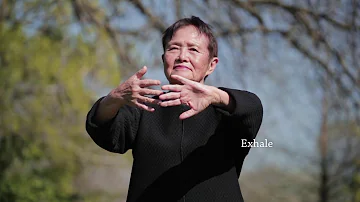What is chi gong used for?
Table des matières
- What is chi gong used for?
- What is the difference between tai chi and chi gong?
- What are the 5 elements of qigong?
- Which is better yoga or qigong?
- Does Qigong build muscle?
- Is Qi a real thing?
- Is chi kung the same as qi gong?
- How is qigong practiced?
- What element is Qi?
- Can you learn qigong by yourself?
- How does Chi Gong work on cancer?
- What is Chi Gong exercises?
- How does Qi Gong differ from Tai Chi?
- What is qigong good for?

What is chi gong used for?
Qigong (pronounced chee-gong) is an ancient Chinese exercise and healing technique that involves meditation, controlled breathing and movement exercises.
What is the difference between tai chi and chi gong?
What is the difference between tai chi and qi gong? “Qi gong can be thought of as a movement you do for a certain situation, as opposed to tai chi form, which is a series of movements that work on the entire body in a flowing sequence,” says Morrill. “For example, qi gong can be one move that helps open the lungs.
What are the 5 elements of qigong?
The concept of the “five elements” (wood, fire, earth, metal and water) as energetic archetypes whose cycles affect the flow of energy in our bodies is central to ancient Chinese medicine and to its qigong health exercises.
Which is better yoga or qigong?
Douglas notes that the flowing postures of qigong may be more beneficial as a model for life, since it teaches practitioners how to stay focused even as outer aspects change. At the same time, yoga postures are better for athletic development and deepening strength, as many of the poses require muscle activity.
Does Qigong build muscle?
Results of the presented correlation analysis reveal a positive relationship between the Qigong training associated improvements in the antioxidant capacity and muscular strength enhancement while MDA levels were negatively related to strength development.
Is Qi a real thing?
In modern contexts, qi is a pseudoscientific, unverified concept, which has never been directly observed, and is unrelated to the concept of energy used in science (vital energy itself being an abandoned scientific notion).
Is chi kung the same as qi gong?
Qigong (/ˈtʃiːˈɡɒŋ/), qi gong, chi kung, chi 'ung, or chi gung (simplified Chinese: 气功; traditional Chinese: 氣功; pinyin: qìgōng; Wade–Giles: ch'i kung; lit.
How is qigong practiced?
Qigong practice typically involves moving meditation, coordinating slow-flowing movement, deep rhythmic breathing, and a calm meditative state of mind.
What element is Qi?
The tradition of Five Element acupuncture is based on the understanding of this cyclical flow of vital energy – also known as Qi. Each of the Five Elements – Wood, Fire, Earth, Metal and Water – represents a distinct quality of the Qi energy that is vital to the continual health and flow of nature.
Can you learn qigong by yourself?
When it comes to using qigong yourself, this is a daily practice that takes a lifetime to master. However, the most basic techniques are arguably the most important, and you can begin with a few simple meditations and movements to pursue a powerful life of health and wellness.
How does Chi Gong work on cancer?
- Improved Mood. Several studies have found qigong to have a positive effect on mood and stress levels among people with cancer.
- Fatigue. Qigong appears to lessen cancer fatigue for people living with cancer and undergoing cancer treatments. ...
- Pain Management. ...
- Improved Cognitive Function. ...
- Help With Other Conditions. ...
What is Chi Gong exercises?
- Qigong (chi gung, or chi kung) is a form of gentle exercise composed of movements that are repeated a number of times, often stretching the body, increasing fluid movement (blood, synovial and lymph) and building awareness of how the body moves through space.
How does Qi Gong differ from Tai Chi?
- Tai Chi power is 'dense' whereas Qigong power is 'light'. ...
- Tai Chi at a higher level strongly accumulates Qi throughout the tendons,ligaments and meridians -- as the Qi flows in a continuous stream it builds to a tremendous ...
- The art of Tai Chi involves an advanced and elaborate choreography,unlike the art of Qigong.
What is qigong good for?
- The many benefits of qigong that are still being widely studied include preventing joint injuries, reducing stress, and balancing hormone levels, among others. As you age, your flexibility begins to suffer, which can lead to less willingness to be physically active, thus making the problem even worse.













